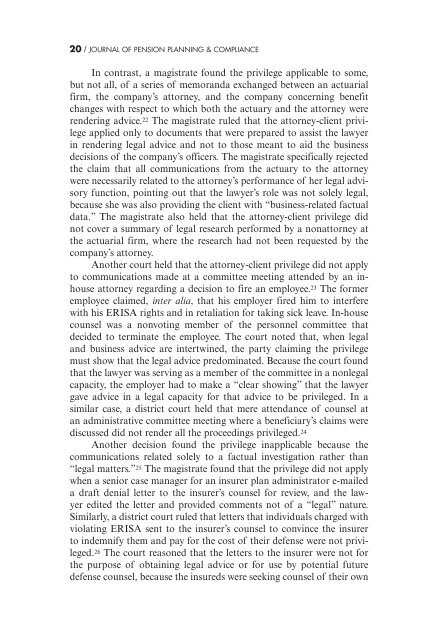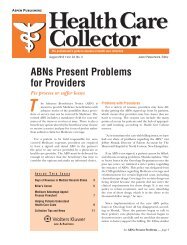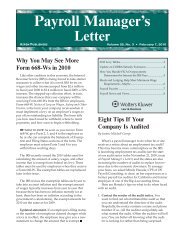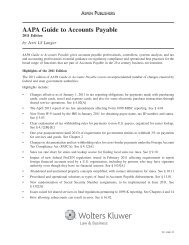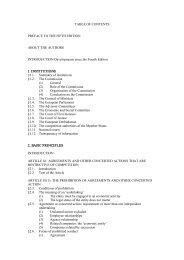journal of pension planning & compliance - Kluwer Law International
journal of pension planning & compliance - Kluwer Law International
journal of pension planning & compliance - Kluwer Law International
Create successful ePaper yourself
Turn your PDF publications into a flip-book with our unique Google optimized e-Paper software.
20 / JOURNAL OF PENSION PLANNING & COMPLIANCE<br />
In contrast, a magistrate found the privilege applicable to some,<br />
but not all, <strong>of</strong> a series <strong>of</strong> memoranda exchanged between an actuarial<br />
firm, the company’s attorney, and the company concerning benefit<br />
changes with respect to which both the actuary and the attorney were<br />
rendering advice. 22 The magistrate ruled that the attorney-client privilege<br />
applied only to documents that were prepared to assist the lawyer<br />
in rendering legal advice and not to those meant to aid the business<br />
decisions <strong>of</strong> the company’s <strong>of</strong>ficers. The magistrate specifically rejected<br />
the claim that all communications from the actuary to the attorney<br />
were necessarily related to the attorney’s performance <strong>of</strong> her legal advisory<br />
function, pointing out that the lawyer’s role was not solely legal,<br />
because she was also providing the client with “business-related factual<br />
data.” The magistrate also held that the attorney-client privilege did<br />
not cover a summary <strong>of</strong> legal research performed by a nonattorney at<br />
the actuarial firm, where the research had not been requested by the<br />
company’s attorney.<br />
Another court held that the attorney-client privilege did not apply<br />
to communications made at a committee meeting attended by an inhouse<br />
attorney regarding a decision to fire an employee. 23 The former<br />
employee claimed, inter alia , that his employer fired him to interfere<br />
with his ERISA rights and in retaliation for taking sick leave. In-house<br />
counsel was a nonvoting member <strong>of</strong> the personnel committee that<br />
decided to terminate the employee. The court noted that, when legal<br />
and business advice are intertwined, the party claiming the privilege<br />
must show that the legal advice predominated. Because the court found<br />
that the lawyer was serving as a member <strong>of</strong> the committee in a nonlegal<br />
capacity, the employer had to make a “clear showing” that the lawyer<br />
gave advice in a legal capacity for that advice to be privileged. In a<br />
similar case, a district court held that mere attendance <strong>of</strong> counsel at<br />
an administrative committee meeting where a beneficiary’s claims were<br />
discussed did not render all the proceedings privileged. 24<br />
Another decision found the privilege inapplicable because the<br />
communications related solely to a factual investigation rather than<br />
“legal matters.” 25 The magistrate found that the privilege did not apply<br />
when a senior case manager for an insurer plan administrator e-mailed<br />
a draft denial letter to the insurer’s counsel for review, and the lawyer<br />
edited the letter and provided comments not <strong>of</strong> a “legal” nature.<br />
Similarly, a district court ruled that letters that individuals charged with<br />
violating ERISA sent to the insurer’s counsel to convince the insurer<br />
to indemnify them and pay for the cost <strong>of</strong> their defense were not privileged.<br />
26 The court reasoned that the letters to the insurer were not for<br />
the purpose <strong>of</strong> obtaining legal advice or for use by potential future<br />
defense counsel, because the insureds were seeking counsel <strong>of</strong> their own


